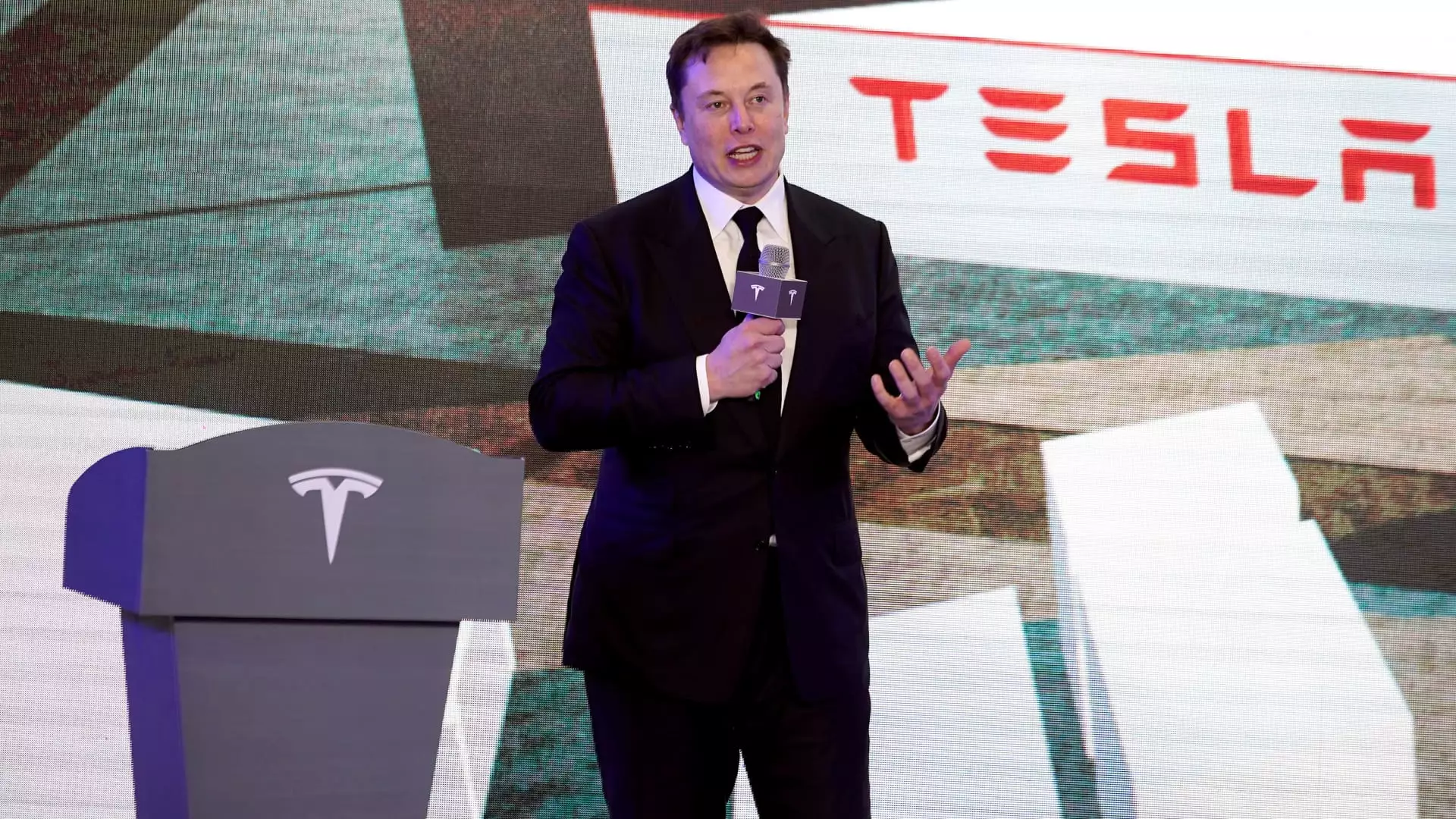In a groundbreaking shift reminiscent of corporate maneuvers typically reserved for boardrooms, Tesla has elected to bolster its defenses against shareholder lawsuits. This change, spearheaded by the automaker’s charismatic CEO Elon Musk, is a strategic adjustment to their corporate bylaws aimed at limiting the circumstances under which shareholders can sue the company for breaches of fiduciary duty. With Tesla now boasting a staggering market valuation exceeding $1 trillion, this initiative may be seen as both a protective measure and a bold statement of corporate independence.
The new bylaw stipulates that any shareholder or group of shareholders must possess at least a 3% stake in the company before initiating or maintaining a derivative proceeding against the company or its executives. This ownership threshold, which translates to over $30 billion at current valuations, sets a formidable barrier for most individual investors, effectively curtailing the accessibility of legal recourse against Tesla’s leadership.
Legal Infrastructure: Texas vs. Delaware
One of the defining elements of Tesla’s decision to amend its bylaws lies within the legal framework of the state in which it is incorporated. Unlike its previous home in Delaware, which historically offered robust protections for shareholders, Texas allows for more corporation-friendly regulations. Corporate law expert Ann Lipton highlights that Tesla is leveraging a specific Texas statute to navigate around traditional shareholder rights. This legal loophole empowers companies to impose significant hurdles for shareholders wishing to file lawsuits regarding management decisions.
In juxtaposition with its Delaware days, where a lawsuit initiated by a shareholder holding merely nine shares resulted in a critical ruling against Musk regarding his 2018 compensation package, the dynamic in Texas starkly differs. Here, the burden of proof for claiming a breach of duty is now placed on shareholders to amass a considerable stake—a change that may embolden corporate excesses under the guise of protecting shareholder interests. The relative ease with which shareholders in Delaware could hold executives accountable has been effectively neutralized, facilitating a landscape where board decisions face far less scrutiny.
Implications for Accountability and Governance
Tesla’s revision of its bylaws raises significant concerns about corporate accountability and governance ethics. It opens up a dialogue about the balance of power between shareholders and corporate executives, especially in a market dominated by influencers like Elon Musk. Many analysts argue that when shareholders find it challenging to hold management accountable, it runs the risk of creating a culture of complacency among executives, potentially leading to questionable decision-making and eroding the principles of good governance.
There’s an inherent contradiction in Tesla’s narrative—positioning itself as an innovative champion of shareholder value while simultaneously erecting barriersto stave off legal challenges. As the company continues to thrive, the implications of such measures could resonate beyond its boardroom, influencing perceptions of corporate responsibility across the broader landscape.
Additionally, issues surrounding the board’s autonomy and the executive’s control become increasingly pertinent. Musk’s earlier comments—“Never incorporate your company in the state of Delaware”—illustrate a dismissive attitude towards judicial oversight, potentially fostering a corporate environment where accountability is seen as optional rather than obligatory. The legal implications of these actions could reverberate into Tesla’s operational practices and long-term sustainability.
The Future of Shareholder Relations
As Tesla’s trajectory grows ever more ambitious, navigating the complexities of shareholder relations will be paramount. While the protection against frivolous lawsuits is a valid consideration for any corporation, the implementation of such stringent measures warrants scrutiny. These amendments might be viewed as a strategic retreat from accountability, raising questions about how far corporations might go to insulate themselves from their stakeholders.
Investors, analysts, and advocacy groups will undoubtedly be watching with keen interest as the consequences of Tesla’s corporate restructuring unfold. The dynamics of shareholder empowerment are evolving rapidly, and how companies like Tesla respond to this changing landscape could redefine future norms in corporate governance. A balancing act must ensue—ensuring that protections for corporations do not come at the inherent cost of shareholder rights and the principles of transparent corporate democracy.


Leave a Reply